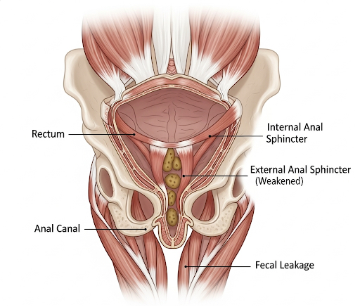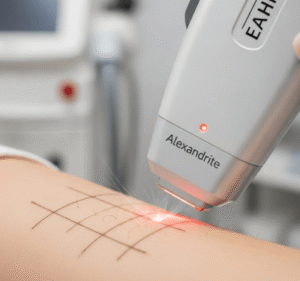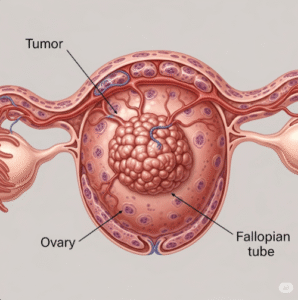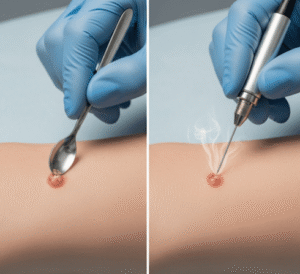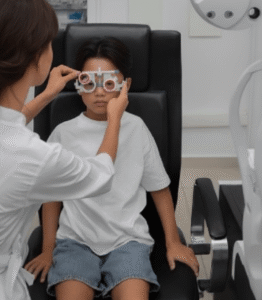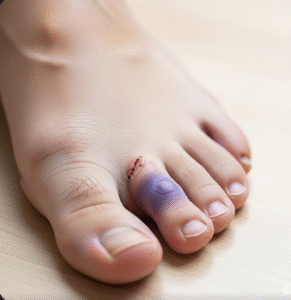Overview
Bowel incontinence, also known as fecal incontinence, is the involuntary loss of stool or gas, leading to an inability to control bowel movements. It can range from occasional leakage to complete loss of control and can significantly affect a person’s quality of life, social interactions, and emotional well-being.
In Korea, advanced gastroenterology and colorectal centers provide comprehensive care for bowel incontinence. Treatments combine medical management, dietary interventions, pelvic floor rehabilitation, and, in severe cases, surgical procedures. Early diagnosis and intervention can greatly improve outcomes and restore confidence in daily life.
Key Facts
- ➔ Bowel incontinence affects individuals of all ages but is more common in older adults.
- ➔ Causes can be multifactorial, involving muscle, nerve, or bowel dysfunction.
- ➔ Symptoms range from mild leakage to severe inability to control stool.
- ➔ Emotional and social impacts are often significant, including anxiety, embarrassment, and depression.
- ➔ Effective treatments are available in Korea, including non-surgical and surgical options.
What is Bowel Incontinence?
Bowel incontinence is a loss of voluntary control over defecation, leading to involuntary leakage of stool or gas. It occurs when the anal sphincter muscles, nerves, or rectal structures are unable to function properly.
- ➔ Mild incontinence: Occasional leakage, often during diarrhea or after consuming trigger foods.
- ➔ Moderate incontinence: Regular but controllable episodes, affecting daily activities.
- ➔ Severe incontinence: Frequent or constant loss of stool, requiring urgent medical attention and comprehensive management.
Bowel incontinence can be temporary or chronic, depending on the underlying cause, and is often associated with urinary incontinence or pelvic floor disorders.
What Symptoms Are Related To
In addition to involuntary stool leakage, bowel incontinence may present with other symptoms:
- ➔ Frequent urges to defecate without full control
- ➔ Gas or stool leakage, sometimes with urgency
- ➔ Constipation or diarrhea alternating with leakage
- ➔ Anal discomfort or pain
- ➔ Skin irritation or infections around the anal area
- ➔ Emotional distress, anxiety, or depression due to social embarrassment
Recognizing associated symptoms helps clinicians identify the cause and tailor treatment strategies effectively.
What Causes / Possible Causes
Bowel incontinence can result from muscle weakness, nerve damage, or bowel dysfunction. Common causes include:
- ➔ Anal sphincter injury: Often due to childbirth, surgery, or trauma.
- ➔ Nerve damage: Conditions like spinal cord injury, multiple sclerosis, or diabetes-induced neuropathy.
- ➔ Chronic diarrhea: Frequent loose stools can overwhelm control mechanisms.
- ➔ Constipation and fecal impaction: Can stretch and weaken the anal sphincter.
- ➔ Age-related changes: Weakening of pelvic floor muscles with aging.
- ➔ Inflammatory bowel disease: Ulcerative colitis or Crohn’s disease may contribute.
- ➔ Rectal prolapse or structural abnormalities: Weakening or displacement of rectal tissues.
Identifying the precise cause is critical to determining the most effective treatment and preventing recurrence.
When Should I See My Doctor
Medical consultation is necessary if you experience:
- ➔ Frequent or worsening episodes of stool leakage
- ➔ Inability to control bowel movements despite lifestyle adjustments
- ➔ Pain, bleeding, or unexplained weight loss
- ➔ Diarrhea or constipation that is persistent or severe
- ➔ Emotional distress or social impairment due to bowel incontinence
Early evaluation allows doctors to provide interventions that prevent complications, improve quality of life, and restore confidence.
Care and Treatment
Management of bowel incontinence depends on cause, severity, and patient needs. General care includes:
- ➔ Dietary adjustments: Increasing fiber intake for consistency, avoiding trigger foods.
- ➔ Bowel training: Scheduled bathroom visits to improve control and reduce urgency.
- ➔ Pelvic floor exercises: Strengthening anal and pelvic muscles to enhance continence.
- ➔ Medications: Anti-diarrheal agents, stool softeners, or bulking agents depending on bowel consistency.
- ➔ Skin care: Maintaining hygiene to prevent irritation and infection.
- ➔ Psychological support: Counseling for anxiety, stress, or depression associated with incontinence.
In many cases, conservative care significantly improves symptoms and restores confidence.
Treatment Options in Korea
Korean medical facilities provide advanced, multidisciplinary care for bowel incontinence:
- ➔ Gastroenterology and colorectal evaluation: Comprehensive assessment including colonoscopy, anorectal manometry, and imaging.
- ➔ Pelvic floor rehabilitation: Biofeedback and physical therapy programs tailored to individual needs.
- ➔ Medication management: Prescriptions to control diarrhea, constipation, or inflammation.
- ➔ Minimally invasive procedures: Injectable bulking agents or sphincter repair techniques.
- ➔ Surgical interventions: For severe or refractory cases, including sphincteroplasty, stoma creation, or rectal prolapse repair.
- ➔ Holistic care programs: Integrating lifestyle modification, dietary guidance, and psychological support.
Top hospitals like Seoul National University Hospital, Asan Medical Center, and Samsung Medical Center offer expert care with multidisciplinary teams in gastroenterology, colorectal surgery, and rehabilitation.
In Summary: Bowel incontinence is a common but manageable condition that can have significant physical, emotional, and social impacts. Early recognition, tailored lifestyle interventions, and advanced medical or surgical treatments in Korea can restore continence, improve quality of life, and reduce the emotional burden.
- ➔ Key Takeaway: Persistent bowel leakage should not be ignored; early treatment improves outcomes.
- ➔ Action Point: Seek consultation with a gastroenterologist or colorectal specialist to evaluate and treat bowel incontinence effectively.

